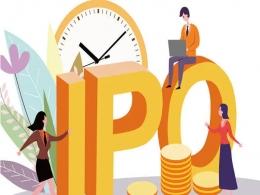In March 2014, I remember speaking at the annual Harvard Business School India conference. The mood was somber. I had just returned from a “doom and gloom†trip to India in February. To liven the mood in the auditorium, I remarked, a bit tongue in cheek, “all that goes down must come upâ€. I was referring to the overall India sentiment not only from the foreigners looking at India as an investment destination, but also Indians themselves who were shaking their heads in disbelief.
Every time I travel through India, I make it a point to speak with the “aam aadmi†(common man) to really get a sense for what they are thinking and daily battles they fight. I will never forget the atmosphere in February. The government was at a standstill with the pending general election in June. I heard over and over again that no one within government or bureaucracy was willing to make a decision of any kind, leading to complete policy paralysis. It was the moment when “time stood still†in India, in a bad way. Entrepreneurs were incredibly frustrated.
Raising capital was difficult, getting regulatory approvals was impossible and the entrepreneurial ecosystem was facing strong headwinds. Everyone seemed to be holding their breath hoping for something truly spectacular in the June elections. Skeptics were propagating the belief that nothing would really change, and that the “system†of corruption and inefficiency is too deeply embedded to be broken.
Well, my next trip was in June, just after the elections, and the sentiment had shifted at least 100 degrees from February (not quite 180 deg). The unprecedented events of the election are well documented. What is amazing is the sentiment shift for the population at large, from the big company CEOs to the auto-rickshaw drivers. Everyone breathed a sigh of relief, not that a turnaround was imminent, but that there was finally hope of something positive happening. Aside: As a Sikh, I was extremely disappointed in Manmohan Singh’s lack of conviction, communication and forethought. For someone who ushered in reform and put India on a remarkable track as finance minister will unfortunately go down in history perhaps for his puppet-like stint as prime minister.
It was not just the elections and the sentiment shift based on political currents that made 2014 special. One of the marquis technological achievements came not on earth but in the heavens. As an aerospace engineer, I was delighted and proud to see India truly shine with its technical achievement to put a satellite into orbit around Mars in its first try and join a technologically elite group of countries. What was even more remarkable, of course, was the capital efficiency with which the feat was accomplished. That is something the world really ought to and will pay attention to.
The September trip continued the positive trend and absolutely went ballistic in my most recent December journey.
There is no denying that 2014 will go down as the pivotal year when technology entrepreneurship, specifically ecommerce, truly arrived in a meaningful way in India. Billion dollar babies that were a distant thought a couple of years ago, are now are now commonplace, with still more to come in the next few years. While financial pundits may debate the merits of lofty valuations, there is no denying that combination of the sharing economy, consumption economy and convenience economy has taken India by storm this year.
Flipkart and Snapdeal lead the pack, but there are several more that are now at critical mass and massive scale around content, analytics, commerce, communities and more. On my most recent trip I thoroughly enjoyed my conversations with taxi and auto rickshaw drivers, most of whom have embraced the Uber/Ola/TaxiForSure transformation. I heard rave reviews of companies like Big Basket for grocery delivery, where I was originally skeptical whether the quality and consistency could be preserved, especially at scale.
The same infrastructure issues of logistics and payments that I thought would hamper growth in India, are the very issues that entrepreneurs have tackled head-on and as a result, and created fast growing (and hopefully profitable in the not so distant future) ventures.Part of the ecommerce euphoria, no doubt, is being driven by the “Alibaba effectâ€. Same set of issues and opportunities presented themselves in China a few years ago. And while I am not a big fan of comparing India and China, for this particular segment, the forcing functions are similar.
During my four trips to India in 2014, I have witnessed steady progress “up and to the right†in terms of sentiment, entrepreneurial blossoming, global venture capital inflows (thanks SoftBank!) and overall positive attitude shift that can and will become a self fulfilling prophecy. Clearly, India is not (and will likely never be) perfect. Issues of corruption, civic responsibility, law enforcement, etc still remain. But the young aspirational populous, mobile ubiquity, the relatively stable government and ironically the very issues of India (traffic, parking, congestion and pollution) are creating the perfect storm for entrepreneurial success in India, especially around ecommerce.
For the first time in several years, I am getting inquiries by venture capital firms, private equity shops and family offices in the US indicating that they don’t have enough exposure to India. I have a feeling they may be right. Kudos to the angel and venture investors who have believed in India and Indian entrepreneurs for the past several years. Patience is paying off, as 2014 has clearly shown. I am thrilled that what I thought was a passing remark in March turned out to be prophetic by the end of 2014. I, for one, am looking forward to an awesome 2015.
(Mohanjit Jolly is the managing director, Draper Fisher Jurvetson India. The views expressed are strictly personal. They do not represent the views of the organization he represents.)
To become a guest contributor with VCCircle, write to shrija@vccircle.com.






